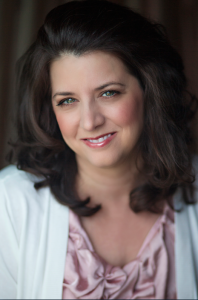 Denise Grover Swank is the New York Times and USA Today bestselling author of nearly twenty novels, including mysteries, paranormal and urban fantasies, rom-coms, and thrillers for young adults, new adults, and adults, and various short stories. Denise’s two newest books—Business as Usual, the third book in the bestselling Off the Subject series, and The Curse Breakers, the second book in the Curse Keepers series, just released last month. Her Thirty-Two and a Half Complications, the fifth book in her popular Rose Gardner Mysteries series, comes out next month. And if that’s not enough to impress you, how about this: Denise does all this writing while raising six amazing children.
Denise Grover Swank is the New York Times and USA Today bestselling author of nearly twenty novels, including mysteries, paranormal and urban fantasies, rom-coms, and thrillers for young adults, new adults, and adults, and various short stories. Denise’s two newest books—Business as Usual, the third book in the bestselling Off the Subject series, and The Curse Breakers, the second book in the Curse Keepers series, just released last month. Her Thirty-Two and a Half Complications, the fifth book in her popular Rose Gardner Mysteries series, comes out next month. And if that’s not enough to impress you, how about this: Denise does all this writing while raising six amazing children.
*Denise’s interview follows the Rafflecopter form for today’s Free Full Edit Giveaway. Scroll down for her full interview.
How many drafts does it typically take before you feel confident about the character and story choices you made?
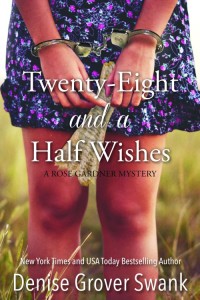 I’m never one hundred percent happy with a first draft, but I’ve had a couple among my seventeen books that I felt really good about and made only a few changes in revision. I finished a book last month that took about five passes with significant changes before I was happy with it. It’s not unusual for me to write a first draft and then cut one-third to half the book out and start over again. I usually know what’s wrong with the book when I’m finished, and when I send it to my awesome developmental editor—Angela Polidoro—I send her a list of my perceived issues, and she always agrees and then adds her own. But when I chop the book up and add to it, I’m usually pretty happy with the changes and only make minor changes in a third pass.
I’m never one hundred percent happy with a first draft, but I’ve had a couple among my seventeen books that I felt really good about and made only a few changes in revision. I finished a book last month that took about five passes with significant changes before I was happy with it. It’s not unusual for me to write a first draft and then cut one-third to half the book out and start over again. I usually know what’s wrong with the book when I’m finished, and when I send it to my awesome developmental editor—Angela Polidoro—I send her a list of my perceived issues, and she always agrees and then adds her own. But when I chop the book up and add to it, I’m usually pretty happy with the changes and only make minor changes in a third pass.
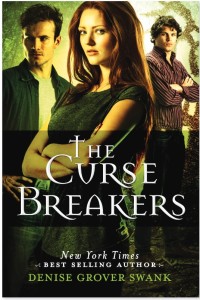 Do you use critique partners?
Do you use critique partners?
I used to use critique partners when I first started writing and into the second year after I started publishing, but I’m too prolific for my partners to keep up. At this point, I only use a developmental editor along with three to five beta readers between developmental edits and line edits. But when I first started, I had three trusted critique partners and we made developmental suggestions along with line edits. My last remaining crit partner and I are too busy to give a full critique—and we pay people to do it—so we now beta read for each other when we have the time.
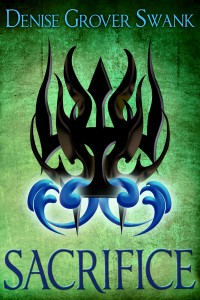 Which draft typically gets shown to your editor?
Which draft typically gets shown to your editor?
I send my first draft to my developmental editor. I hired a developmental editor with my fifth book—Sacrifice—and when she suggested I send the first draft, I was beyond horrified. SEND HER MY FIRST DRAFT??? But she said there was no sense editing words I was only going to cut, and she was right.
So when my first editor took a job that made her unavailable, I worked with new developmental editor and was again HORRIFIED. I’m more comfortable with it now because she knows I can take a very crappy first draft and pull a fantastic book out before it’s done.
How much revising happens after the editor sees that draft?
I send my first draft to Angela. She takes a week to go through it a couple of times and sends her notes. Then I do my major revision—chopping out major portions and rewriting or adding—and also clean up the writing—sentence structure. I usually budget three to four weeks for this. And then I send it back to her for line edits.
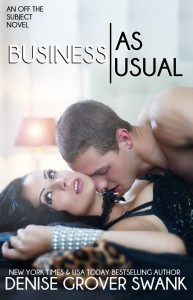 Can you share an experience of having a story problem you didn’t think you could solve but eventually did?
Can you share an experience of having a story problem you didn’t think you could solve but eventually did?
Wow. You know, when you’re in the middle of a block, you wonder how in the world you’ll get out of it, but at this point—seventeen books later—I trust it will come. I usually binge-watch Netflix and an idea/solution will come to me out of nowhere. I think the key—for me anyway—is to think about something else for a while.
My last book—The Curse Defiers—is the hardest book I’ve written to date. [Editor’s note: Pubbing September 2014.] It’s the one that took five major revision passes to complete. I sold the book to my publisher as a series but they chose to call it a trilogy after I had written the second book. I honestly had no idea how to wrap everything up in one book without making a complete mess of it. I still plan to continue the series with at least three more books, but obviously I had to wrap up some major issues for readers to be satisfied with a “trilogy.” Several plot lines stumped me and I wrote it only to decide it sucked and so rewrote it, then changed it completely and rewrote it again.
What’s the most drastic thing you’ve done to a story while revising?
Other than The Curse Defiers, I cut off the entire first half of my book Sacrifice and rewrote it in three weeks and blended and smoothed it into the second half, which took major changes.
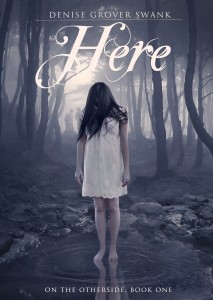 How do you know you’ve got the final draft?
How do you know you’ve got the final draft?
With my deadlines, I know when it’s time to send it to my editor. LOL. That being said, I won’t publish it if I don’t think it’s ready. Beta readers help determine that, along with a gut feeling that it’s right.
Thanks so much, Denise! I was fascinated to hear the nuts and bolts of your process.

It is great to learn how others work. Thanks for sharing. Also thanks Deborah for Revision Week!
Glad you’ve enjoyed it, Rick.
This week of awesome! Thanks so much, Debra!
I find them as inspirational as anybody. Wondering how I can finish up the edit I’m working on today so that I can get writing on my WIP today. It wasn’t in my plan for the day but now I need to MAKE it be! Otherwise, I might burst. This week of writers has my pen itchin’.
Good to know even prolific authors write messy first drafts. Mine are practically outlines considering how much changes in revision, and it makes me feel self-conscious. (Especially if crit partners ask to see pages!)
Also, my heart goes out to Denise for having to wrap her series up in one book unexpectedly. Sounds challenging!
I can’t wait to see what she finally decided to do. But gotta sit on that excitement till the book comes out in September, I guess.
Courtney, often in first draft, the end of my book will be so bare-bones that it’s almost like a script. It’s awful. And yes, wrapping up the major plot points in the third book to call it a trilogy was TOUGH, but I’m trying to use it to my advantage. 🙂
Great interview. Thanks for sharing Denise’s revision tips.
It’s been my honor to share them.
Thanks for reading!
Denise’s comment, “but I’m too prolific for my partners to keep up” reminded me of one of my critique group buddies. He writes circles around the rest of us, so he relies on his own editing devices for all the stories that he can’t fit into our critique group slot. But he still trusts us to give him valuable feedback on what he does send our way. 🙂
Hmmm, I wonder if binge-watching Netflix will help me solve idea issues? Better yet, I wonder if binge-eating cupcakes might accomplish the same task? LOL!
Thanks for yet another interesting insight into how a prolific author works, Deborah and Denise!
Binge-eating cupcakes….I say it’s worth a try. Yes, do it. Editor’s orders!
I’m willing to sacrifice my waistline for science and writing. And besides, if you order me to, I don’t have a choice! 😀
The binge-watching Netflix suggestion is brilliant. I second that as a way to break through writer’s block. I couldn’t figure out how to make my characters fiercer/meaner/scarier/darker and binged Spartacus and Breaking Bad. Fixed that problem. ^_^
Theresa, I’m really liking your idea to binge-eat cupcakes. Now I want a cupcake.
What have I wrought? As long as I don’t get blamed for any ensuing health issues. LOL!
I loved reading about your process. Thanks for sharing about the status of your first drafts.
I agree. Her first draft experiences are fascinating.
This has been a great week of interesting interviews! Thank you, Deborah, for bringing them to us.
You rock, Deb. Happy Mother’s Day x 3! Thanks for the inspiration. Now back to my MS… or Netflix? Dilemma.